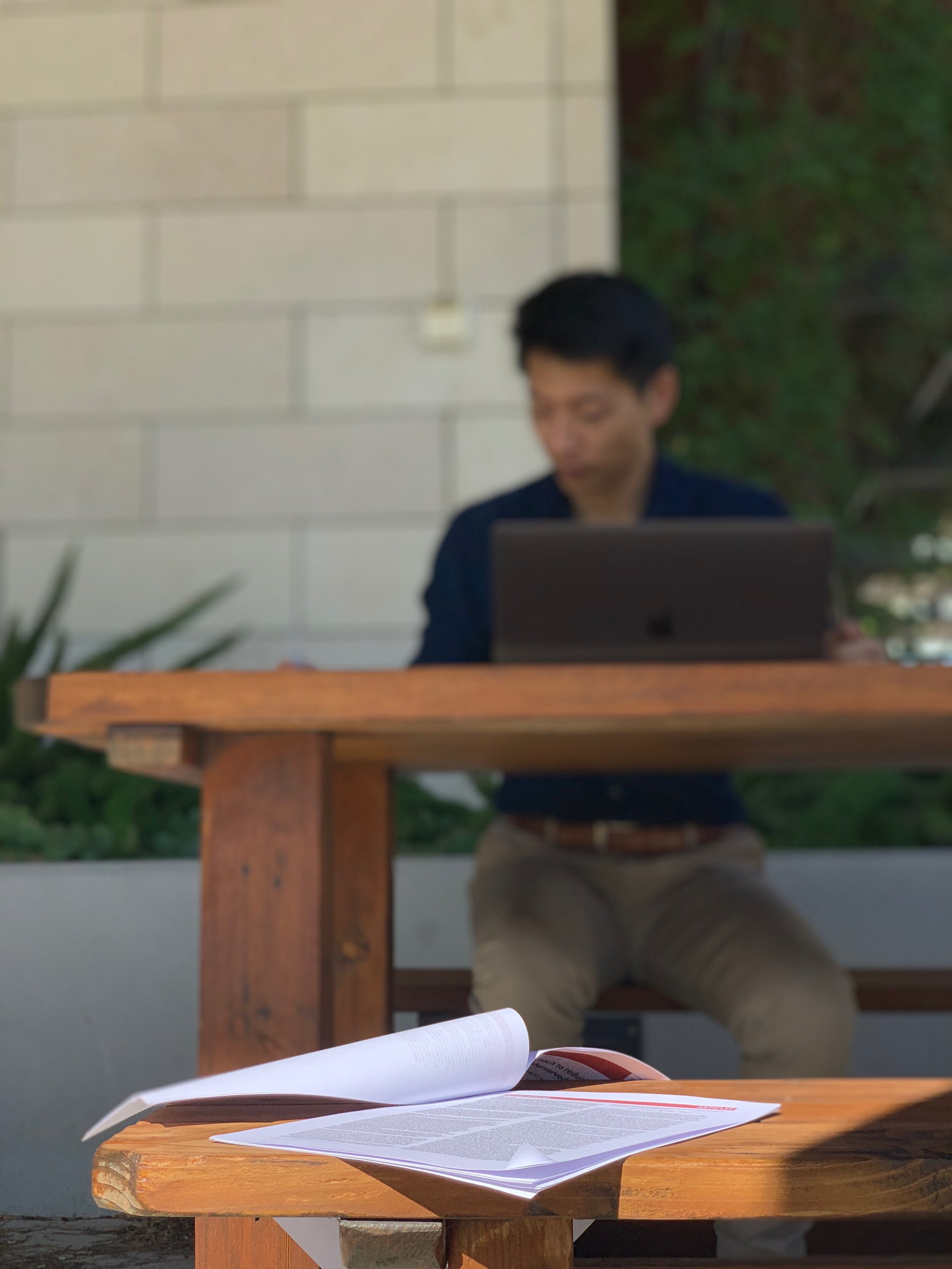Bio
— BIOGRAPHY —
I am a resident physician at Wills Eye Hospital/Jefferson Health, passionate about harnessing innovative technologies to deliver efficient, affordable, and accessible patient-centered vision and health care. As an MD/MBA student at Stanford, I designed courses on healthcare leadership, digital health, and clinician-patient communication strategies. I currently host the podcast The Doctor’s Art, which features stories from physicians, patients, and healthcare leaders on finding meaning in medicine, and write regularly on humanistic medicine, healthcare delivery innovation, and medical education.
I was born and raised in Taiwan. My father, who is of Austronesian descent (the indigenous peoples of Taiwan), is a physician who frequently provides care in resource-limited rural regions. Early on, seeing the strong relationships he forged with patients shaped my understanding of medicine as a distinct vocation that combines scientific and humanistic pursuits to heal people at the most profound levels.
I moved to the U.S. for college. At Rice University in Houston, Texas, I continued exploring my dual interests in the sciences and the humanities, working towards degrees in Biochemistry and Medieval Studies. At the Texas Heart Institute and McGovern Medical School, I conducted laboratory research on the biomarkers of cardiovascular diseases and stem cell therapies for congenital heart and lung diseases. Advancing the frontiers of scientific knowledge was a thrilling endeavor. Meanwhile, my studies in the humanities — with a focus on Anglo-Saxon and Irish art and literature — gave me an appreciation for storytelling and for how humans throughout history have grappled with universal themes such as pain, suffering, love, mortality, and hope. These insights into the human condition bolstered my early conviction that prioritizing the patient voice would make me a more holistic and effective physician leader.
Discovering Ophthalmology and Health Care Innovation
After college, I matriculated into the MD program at Stanford University School of Medicine. I found a love for ophthalmology. Why? Because visual impairment is a manifestation of many chronic illnesses and because preserving vision is so integral to people’s livelihood and quality of life. My clinical research has focused on inventing medical devices for eye care, devising new surgical procedures, and applying artificial intelligence to augment diagnosis of ophthalmic diseases. Harking back to my roots, I established a telemedicine network for eye care across rural Austronesian regions of Taiwan, mobilizing a portable retinal camera created at Stanford. I perceived how technology could drastically expand health care access, as well as how I could bring my medical expertise and multicultural background to bear on a more systemic level.
Improving the Patient-Physician Relationship
My clinical experiences taught me the transformative power of strong patient-doctor relationships. Stimulated by my patient encounters, I regularly contribute opinion pieces and stories on humanistic medicine to peer-reviewed medical journals. I also design and lead medical school courses on narrative medicine, healthcare leadership, and managing difficult conversations with patients. Most recently, I created and co-host the podcast The Doctor’s Art, in which I meet with physicians, patients, and healthcare leaders to discuss stories on finding meaning in medicine.
From my conversations with clinicians, I discovered how structural factors, such as the excessive complexity of health care tasks and the fractured nature of healthcare systems, limit the time physicians can give patients and impede the coordination of longitudinal care. Although I explored the use of health technologies to address these barriers — through projects at Stanford Biodesign and my research as a fellow at Stanford’s Clinical Excellence Research Center — I encountered various capital, bureaucratic, and strategic challenges, convincing me that technological innovations alone cannot resolve organizational limitations. This awareness inspired me to enter the MBA program at the Stanford Graduate School of Business.
Engaging with Health Policy and Outreach
When COVID-19 emerged, I led a team at Stanford’s Center for Policy, Outcomes, and Prevention and drew on my knowledge of Taiwan’s centralized healthcare database to devise policy recommendations for hospital and school outbreak management. As a medical consultant for Covid Act Now, I helped develop a COVID-19 tracking and forecasting model, advised state- and county-level policymakers on pandemic response, and created a daily newsletter on COVID-19 scientific findings that had more than 250,000 subscribers. I saw how making medical information more available and accessible empowered individuals to make better decisions about their own health.
Health care innovation cannot occur in a vacuum, but rather must be accompanied by institutional processes, organizational cultures, and regulatory environments that are ready to embrace them. That is why I strive to lead health systems that harness emerging technologies and innovative care delivery models to increase the availability of vision and health care — and not just any care, but that which is centered on what ultimately matters most to patients.
Selected Awards & Distinctions
Philadelphia Business Journal’s 40 Under 40 Honoree (2024)
Knight-Hennessy Scholar (2021)
Irvin David Yalom Literary Award: Finalist (2020)
American Society of Ophthalmic Plastic and Reconstructive Surgeons: Marvin H. Quickert Thesis Award (Co-Awardee; 2019)
Hope Babette Tang Humanism in Healthcare Essay Contest: Third Place (2019)
Stanford Society of Physician Scholars Grant (2019)
Phi Beta Kappa (2017)
Rice University Trustee Distinguished Scholarship (2013-2017)
Barry M. Goldwater Scholarship (2016)
Mary Ellen Hale Lovett Fellowship (2016)
Rice Undergraduate Scholars Program: Scholar (2016)
Child Family Health International: Global Health Education Scholarship (2015)
National Cancer Institute: R25E Cancer Prevention Research Fellowship (2014)
National Merit Scholarship (2013)
U.S. Congressional Award Gold Medal (2013)
I enjoy traveling and taking pictures wherever I go. Follow me on Instagram @henrybair↓














